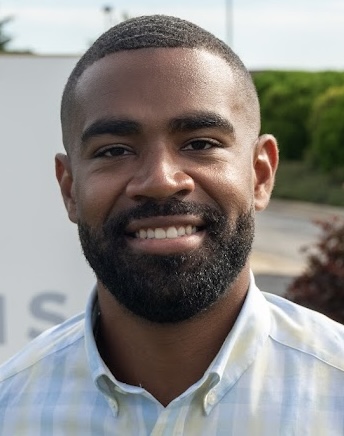Dialectical Behavioral Therapy (DBT) in Nashville, TN
At Nashville Treatment Solutions, we understand that recovery is a journey that requires comprehensive, evidence-based approaches tailored to each individual’s needs.
Dialectical Behavioral Therapy (DBT) is one of our core therapeutic modalities that has helped countless clients develop the skills needed to manage difficult emotions, improve relationships, and build a life worth living.
Our experienced team of therapists provides specialized DBT therapy in the heart of Nashville, offering hope and healing to those struggling with a variety of mental health and substance use disorders.
If you or a loved one are struggling with addiction or mental health, learn more about our Nashville addiction treatment programs our admissions page today to get started.
What is Dialectical Behavioral Therapy (DBT)?
Dialectical Behavioral Therapy (DBT) is a comprehensive, evidence-based treatment developed by psychologist Dr. Marsha Linehan. Originally designed to treat borderline personality disorder, DBT has since been adapted to effectively address a wide range of conditions, including substance use disorders, depression, anxiety, and post-traumatic stress disorder.
The term “dialectical” refers to the integration of two opposing concepts: acceptance and change.
DBT teaches clients to accept themselves as they are while simultaneously working toward positive change. This balance is essential for recovery and personal growth, as it allows individuals to acknowledge their current struggles while developing the skills needed to create a healthier future and live in sustained recovery.
The Four Components of DBT
DBT therapy consists of four primary components, each designed to address different aspects of recovery:
- Individual Therapy: One-on-one sessions with a trained DBT therapist who helps clients apply DBT skills to their specific challenges and provides personalized guidance throughout the recovery process.
- Group Skills Training: Structured sessions where clients learn and practice DBT skills in four key areas:
- Mindfulness: Being fully present and aware in the moment
- Distress Tolerance: Managing crisis situations without making them worse
- Emotion Regulation: Understanding and managing intense emotions
- Interpersonal Effectiveness: Communicating needs effectively while maintaining relationships
- Phone Coaching: Support between sessions to help clients apply DBT skills in real-world situations and navigate challenging moments.
- Consultation Team: A group of therapists who meet regularly to support each other in providing effective DBT treatment and maintaining fidelity to the model.
You are not alone. You deserve to get help.
Nashville Treatment Solutions is an industry leader in addiction treatment. Our team of top medical experts specialize in dual diagnosis treatment and are committed to ensuring that each patient is treated as an individual. Call us today, we’re available 24/7.
Our Nashville Rehab Programs That Offer DBT Therapy
At Nashville Treatment Solutions, we integrate DBT therapy in Nashville across multiple levels of care to ensure comprehensive treatment that meets each client where they are in their recovery journey:
Generally, here’s what you can expect at each stage of treatment:
Detox
Our medically supervised detox program incorporates introductory DBT skills to help clients manage the emotional and physical challenges of withdrawal.
During this critical early phase, basic mindfulness and distress tolerance techniques provide essential coping mechanisms.
Inpatient Rehab
Our inpatient rehab program offers immersive DBT therapy, with daily individual and group sessions that allow clients to fully engage with all four DBT components in a structured, supportive environment.
This intensive approach provides the foundation for lasting recovery.
Partial Hospitalization Program (PHP)
Our Partial Hospitalization Program (PHP) continues the comprehensive DBT approach while allowing clients more independence. Structured daytime treatment includes regular DBT skills groups and individual therapy, with a focus on applying these skills in increasingly real-world contexts.
Intensive Outpatient Program (IOP)
Our Intensive Outpatient Program (IOP) offers flexible scheduling while maintaining DBT as a core component. Clients attend multiple group sessions weekly, supplemented by individual therapy, as they transition to greater independence while strengthening their DBT skills.
We also offer evening IOP programs or Virtual IOP for those who need to work or go to school while in treatment or those who would prefer to be at home.
Tour Our Nashville Rehab Programs





How Effective Is DBT Therapy?
DBT is one of the most extensively researched therapeutic approaches, with numerous studies demonstrating its effectiveness. Research shows that DBT significantly reduces:
- Self-harming behaviors
- Substance use
- Suicidal thoughts and behaviors
- Hospitalizations
- Treatment dropout rates
Additionally, DBT has been shown to improve:
- Emotional regulation
- Interpersonal functioning
- Overall quality of life
- Treatment engagement and completion
At Nashville Treatment Solutions, we’ve witnessed the transformative power of DBT firsthand, as our clients develop greater emotional resilience, healthier relationships, and the skills needed for sustainable recovery.
Begin DBT Therapy in Nashville Today
DBT therapy at Nashville Treatment Solutions offers the skills, support, and structure you need to overcome addiction and mental health challenges and build a life worth living.
Contact us now to speak with our admissions team about how our DBT-based programs can help you or your loved one. Insurance is accepted, and our staff can verify your benefits quickly.
At Nashville Treatment Solutions, DBT therapy sessions are structured, collaborative, and focused on building practical skills. Here’s what you can expect:
Individual Sessions: These typically begin with a brief mindfulness exercise, followed by a review of the past week using diary cards to track emotions, behaviors, and skill use. Your therapist will help you identify patterns, celebrate successes, and problem-solve challenges, always maintaining a balance between acceptance and change.
Group Skills Training: Led by trained facilitators, these sessions combine education, discussion, and practice exercises. You’ll learn new skills each week, receive homework to practice between sessions, and share experiences with peers who understand your journey.
Our Nashville facility provides a comfortable, confidential environment where you can engage in therapy without judgment. Our DBT-trained therapists are not only experts in the model but are also warm, empathetic individuals committed to your recovery.
DBT therapy is not a quick fix, but rather a process that unfolds over time as you learn and integrate new skills into your daily life. Most evidence-based DBT programs run for approximately 6-12 months, with clients typically beginning to notice meaningful improvements within the first few months of committed practice.
The timeline for results varies based on several factors:
- Individual differences: Everyone’s journey is unique, and healing happens at different rates depending on your specific circumstances, history, and the severity of your symptoms.
- Level of engagement: Clients who actively participate in sessions, complete homework assignments, and practice skills between sessions often see faster progress.
- Comprehensive treatment: At Nashville Treatment Solutions, we find that clients who engage in our full continuum of care—starting with more intensive treatment and gradually stepping down—tend to build a stronger foundation for lasting change.
Many clients report experiencing “small wins” early in treatment—moments where they successfully use a new skill to navigate a challenging situation they previously couldn’t handle. These victories accumulate over time, leading to deeper, more sustainable transformation as DBT skills become second nature.
It’s important to remember that recovery is not linear; there may be setbacks along the way. Our Nashville team provides consistent support throughout this process, adjusting treatment approaches as needed to ensure you continue making progress toward your goals.
If you’ve tried other therapies without finding relief, you’re not alone. Many of our most successful clients came to Nashville Treatment Solutions feeling discouraged after previous treatment attempts. There are several reasons why DBT might be effective even when other approaches haven’t worked:
DBT was designed for “treatment-resistant” cases: Dr. Linehan specifically developed DBT for individuals who weren’t responding to traditional therapies. The approach addresses the challenges that can make treatment difficult, such as emotional intensity, black-and-white thinking, and trouble staying engaged in therapy.
It’s comprehensive: Rather than focusing on just one aspect of recovery, DBT addresses thoughts, emotions, behaviors, and relationships simultaneously, creating multiple pathways for healing.
It’s skills-based: Instead of simply talking about problems, DBT provides concrete tools you can apply immediately in your daily life, creating tangible results that build motivation.
It balances acceptance and change: Many therapies focus heavily on either accepting yourself as you are or making changes. DBT recognizes that both are essential for recovery, helping you feel understood while also supporting your growth.
It’s adaptable: At Nashville Treatment Solutions, we tailor DBT to your specific needs, adjusting the focus based on your unique challenges and goals.

Begin DBT Therapy in Nashville Today
Nashville Treatment Solutions offers drug and alcohol addiction treatment and mental health treatment in Nashville. Call today to get started.





